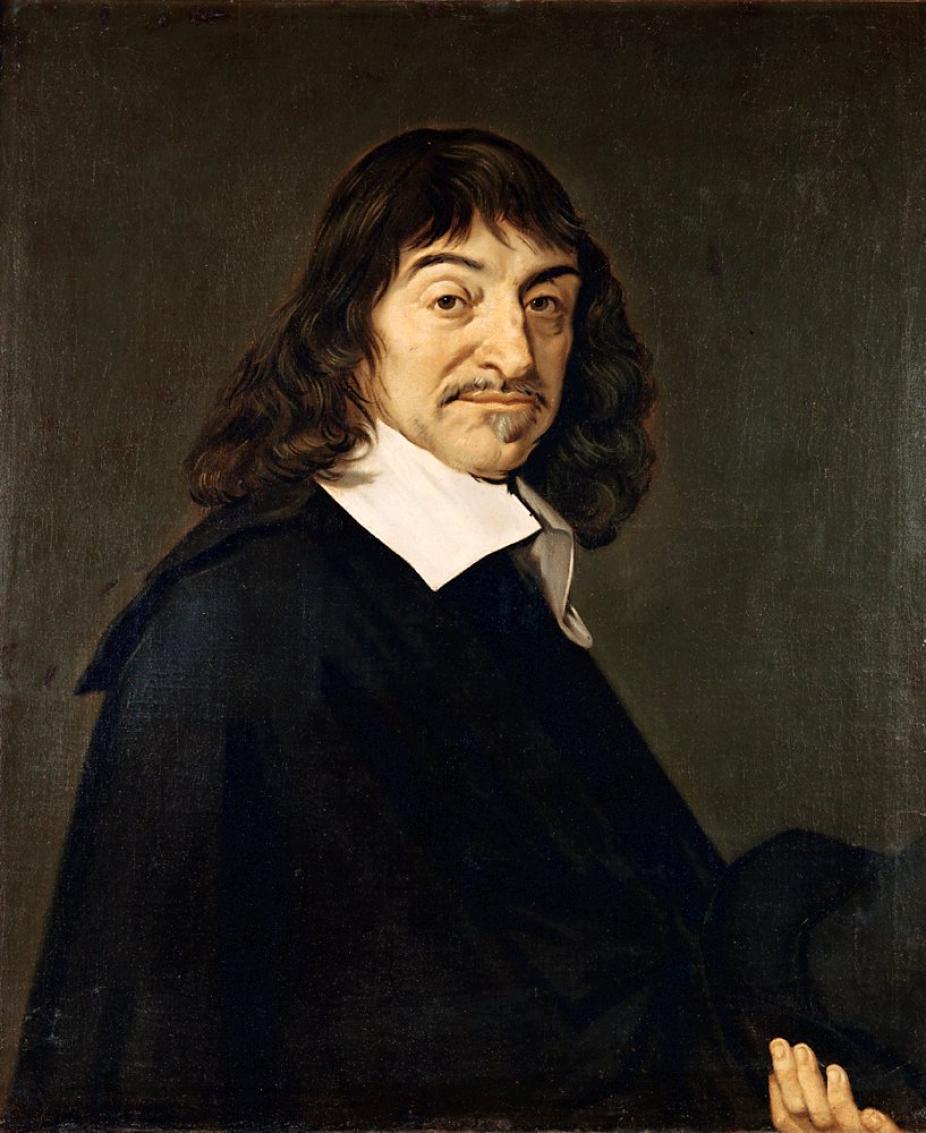René Descartes (1596–1650)
The French philosopher and mathematician René Descartes was born on March 31, 1596 at La Haye, in Touraine, France. At age eight he entered the Jesuit College at La Flèche, where he developed a lasting interest in mathematics. In 1612 he began law studies at the University in Poitier, graduating four years later. He then served as military engineer with the army of the Prince of Nassau, returning to France in 1622. He then traveled across Europe until settling in the Netherlands in 1629.

Portrait of René Descartes.
Wikipedia
In 1644 Descartes published his famed "Principia Philosophiae," a work that attracted considerable interest and is said to have greatly hindered the acceptance of Isaac Newton's mechanical philosophy in Europe, and especially in France. Descartes' basic tenet was that knowledge of the universe could be obtained from "a priori" mathematical reasoning (theoretical deduction rather than from observation or experience).
Unlike his cosmological speculations, Descartes contributions to mathematics have stood the test of time. His greatest achievement was his development of analytic geometry, where geometrical objects are reduced to numbers, and algebraic techniques are used to produce mathematical counterparts to geometrical objects — for example, mathematical expressions describing curves such as parabolae, hyperbolae, and so on.
Descartes was a closet Copernican who was said to have been greatly frightened by the fate of Galileo, to the point of shelving a planned cosmological treatise based on the Copernican hypothesis (planetary model). He did make some important contributions to physics, in particular with the co-discovery of the sine law of refraction.
In 1649 he moved to Stockholm, Sweden, as private instructor to Queen Christina. He died there on February 11, 1650, of a severe cold his first biographers blamed on the harsh Swedish winter.
Bibliography
Porter, R. (ed.) 1994, The Biographical Dictionary of Scientists, Oxford University Press.